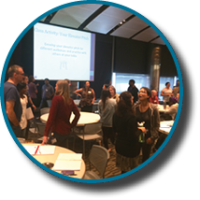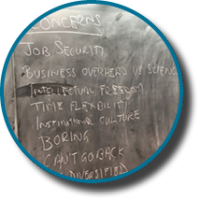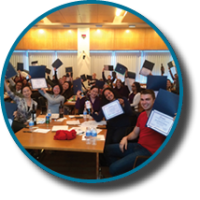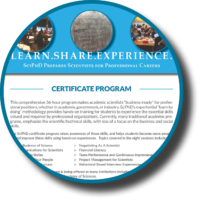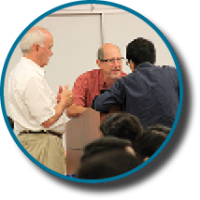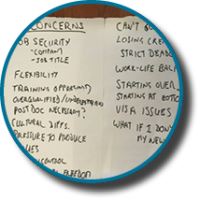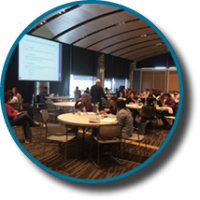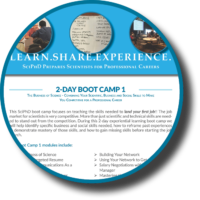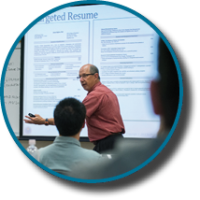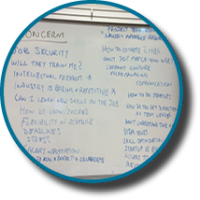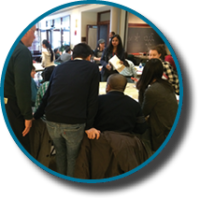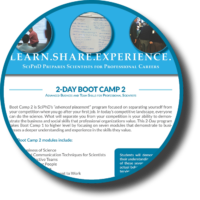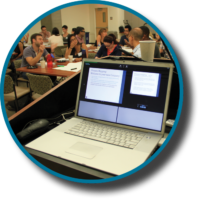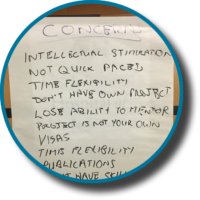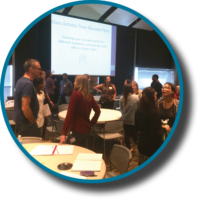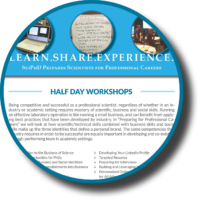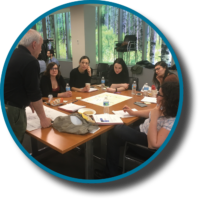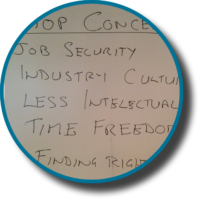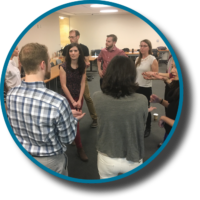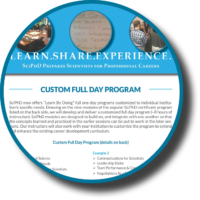“What I learned in the CSO course was very helpful during [my job] selection process (especially everything related to communication), and I hope it will help me to keep my job for a very very long time.”
This comprehensive 2 1/2 day program makes academic scientists “business-ready” for professional positions, whether in academia, government, or industry. SciPhD’s experiential “learn by doing” methodology provides hands-on training for students to experience the essential skills valued and required by professional organizations. Currently, many traditional academic programs, emphasize the scientific/technical skills, with less of a focus on the business and social skills. The SciPhD certificate program raises awareness of these skills, and helps students become more aware of, and improve these skills using hands-on experiences.
To request more information or schedule a program please contact us at info@sciphd.com
